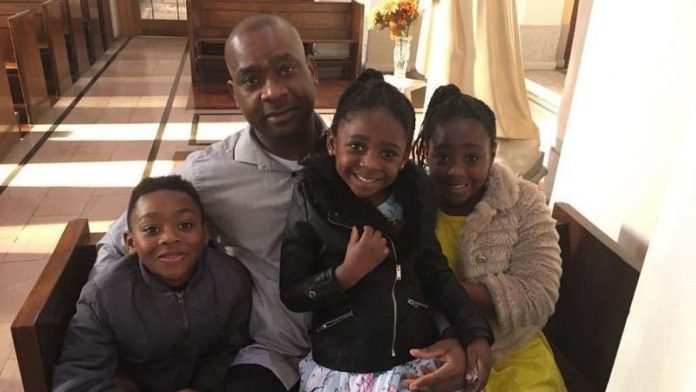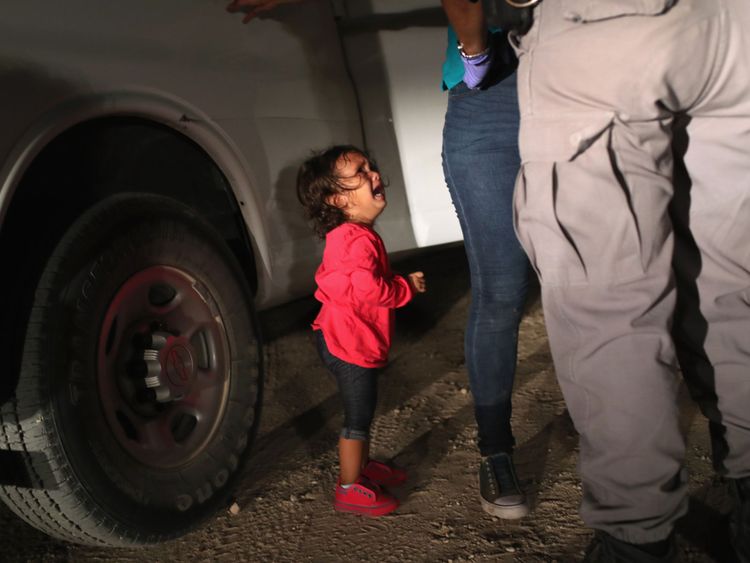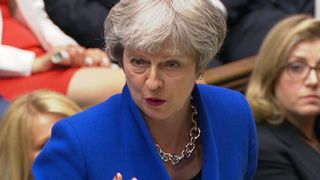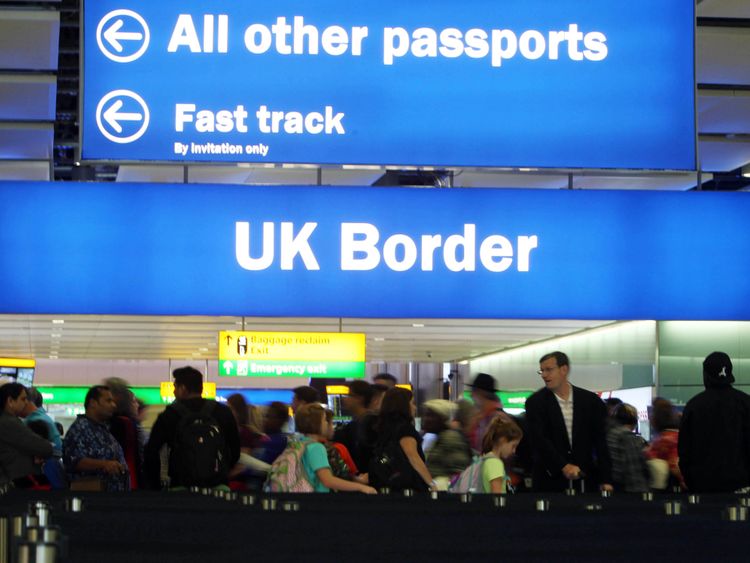[ad_1]
A migrants’ rights charity has condemned the UK government for “routinely” separating families by placing parents in immigration detention.
Bail for Immigration Detainees (BID) says it deals with around 170 cases of families who are split up because of immigration enforcement each year.
Because the Home Office does not release statistics on the number of parents in immigration detention, however, the actual number is unknown.
In the UK, children generally remain with another parent when a guardian is taken into detention, BID legal manager Nicholas Beales said.
But parents are still taken away suddenly, for unknown periods, and with the added threat of permanent removal to a country thousands of miles away – with an often “devastating” effect on children involved.
If removed from the country, they may be told to relocate families of British citizens or keep in touch with their loved ones via Skype.
“You can’t overstate what kind of damage it does,” Mr Beales said. Children are frequently reported to experience panic attacks, bed wetting and altered behaviour when a parent is detained.
The criticism comes in the wake of family separations in the United States, where images of imprisoned children screaming for the parents has prompted widespread condemnation.
In the UK, Home Office regulations state that children are neither split from both their parents nor placed in detention for immigration purposes.
But in less than two years Mr Beales says BID has dealt with several cases in which Home Office enforcement has meant children being taken into care.
Among them are the four children of Kenneth Oranyendu, who was detained when he reported to the Home Office after dropping them off from school in March.
His wife was in Nigeria for her father’s funeral at the time, and the 45-year-old begged immigration authorities to allow him to pick his children up from school. But he was referred to an immigration detention centre 200 miles away, and his children placed in care.
“I said I have nobody, it’s only me,” he told Sky News. “They still detained me.”
Within a few days of his arrest Mr Oranyendu’s wife was able to return to the UK to collect the children, and the family are now together after he was released on bail.
But he still has to report to the Home Office every two weeks, and fears he could be detained again. His children, aged between six and 17 and all British citizens, have been “shattered” by the separation.
“Every time I go out of the house they are afraid I’m not going to come back,” he said. “They are terrified we will abandon them, and suffer from panic attacks. They wake in the middle of the night to check if their mum and dad are still there.”
Mr Oranyedu has a conviction for drugs smuggling – a crime he denies – and was detained by immigration detention after he served his sentence. His supporters say he is being punished twice because he is not a British citizen.
The Home Office told Sky News human rights were “fully considered” Mr Oranyendu’s case, and that his status as a “foreign national offender” meant protecting the public and preventing crime were taken into account.
Government guidance says children must not be separated from both parents for immigration purposes, and set out that the decision to detain any parent should be “necessary and proportionate” with regard to the children concerned.
A spokesperson said immigration procedures would not result in children being taken into care unless in exceptional circumstances, and said children’s welfare and safeguarding was at the heart of family returns.
BID argues, however, that following this guidance amounts to “little more than a tick box exercise” and says the government is putting individuals in detention with little consideration for the impact on the child.
“It’s just the casual cruelty – the uncertainty of what’s going to happen,” Mr Beales said. “The system is not working.”
[ad_2]










